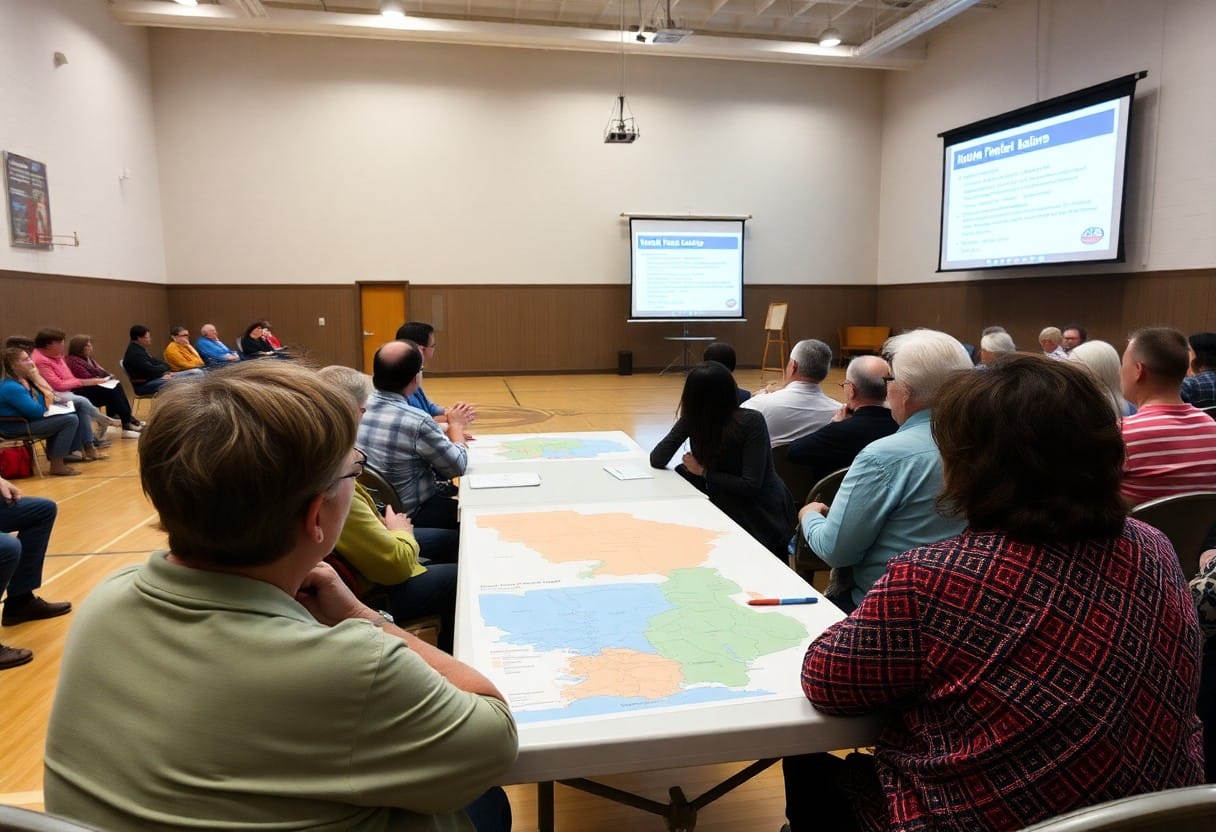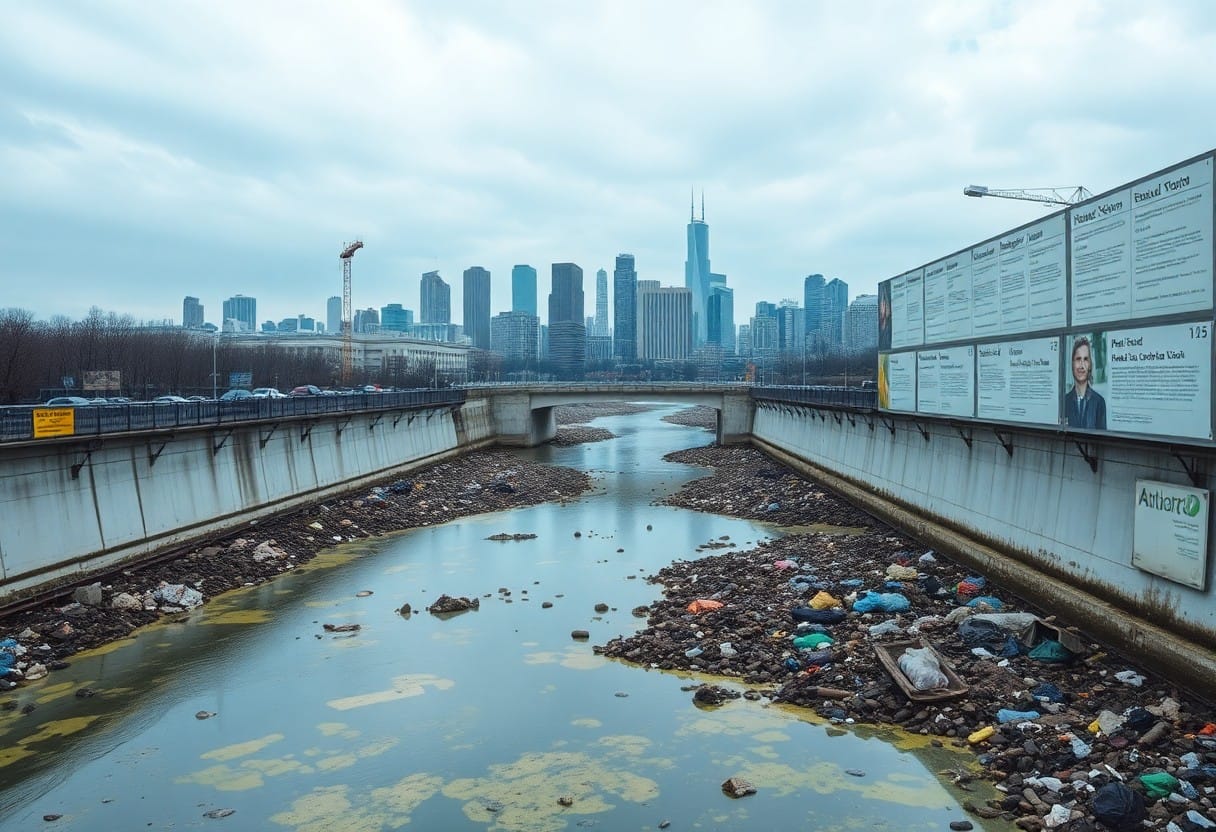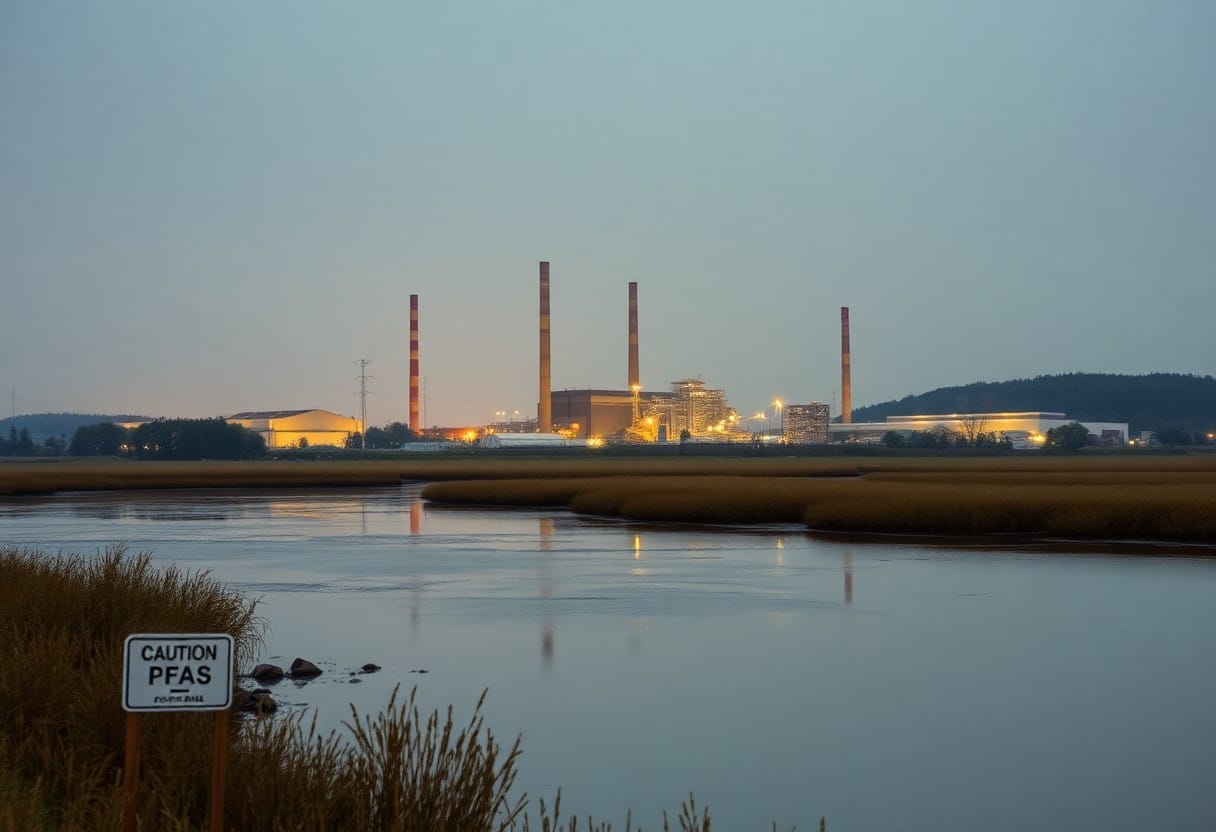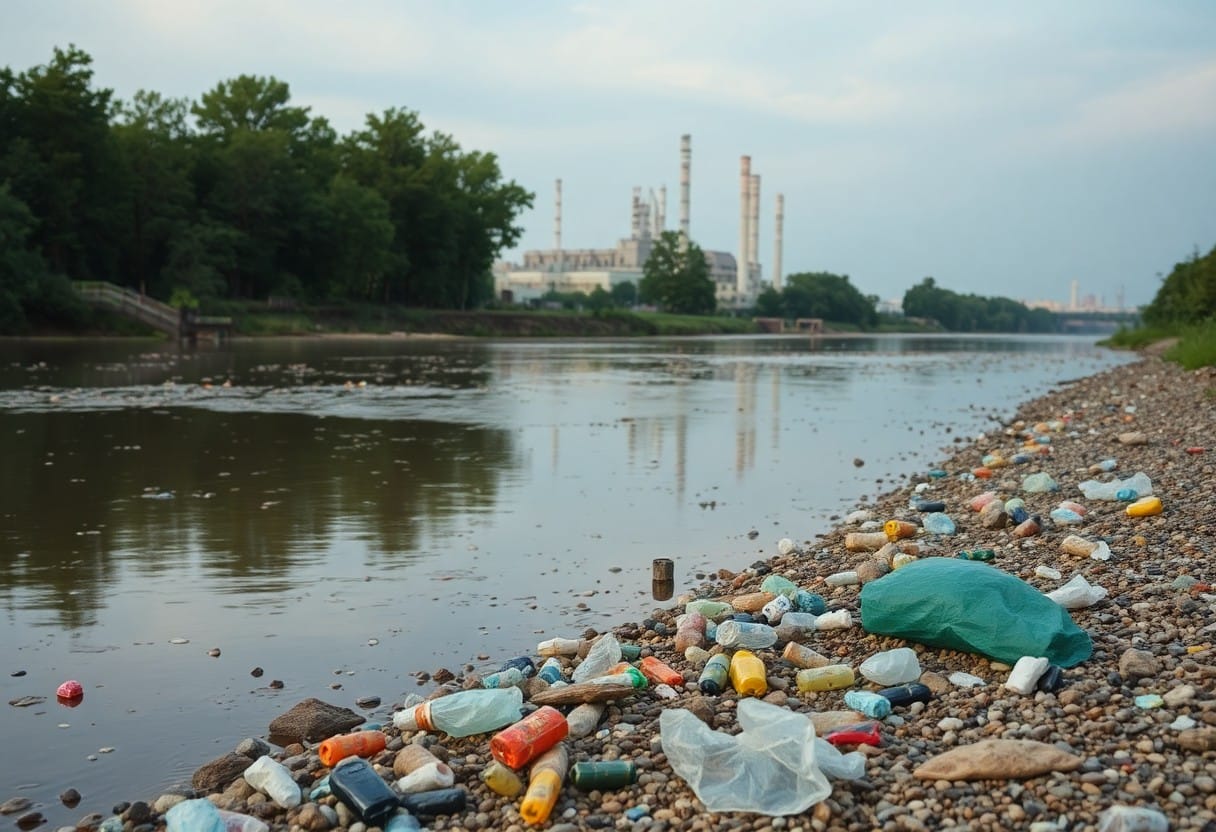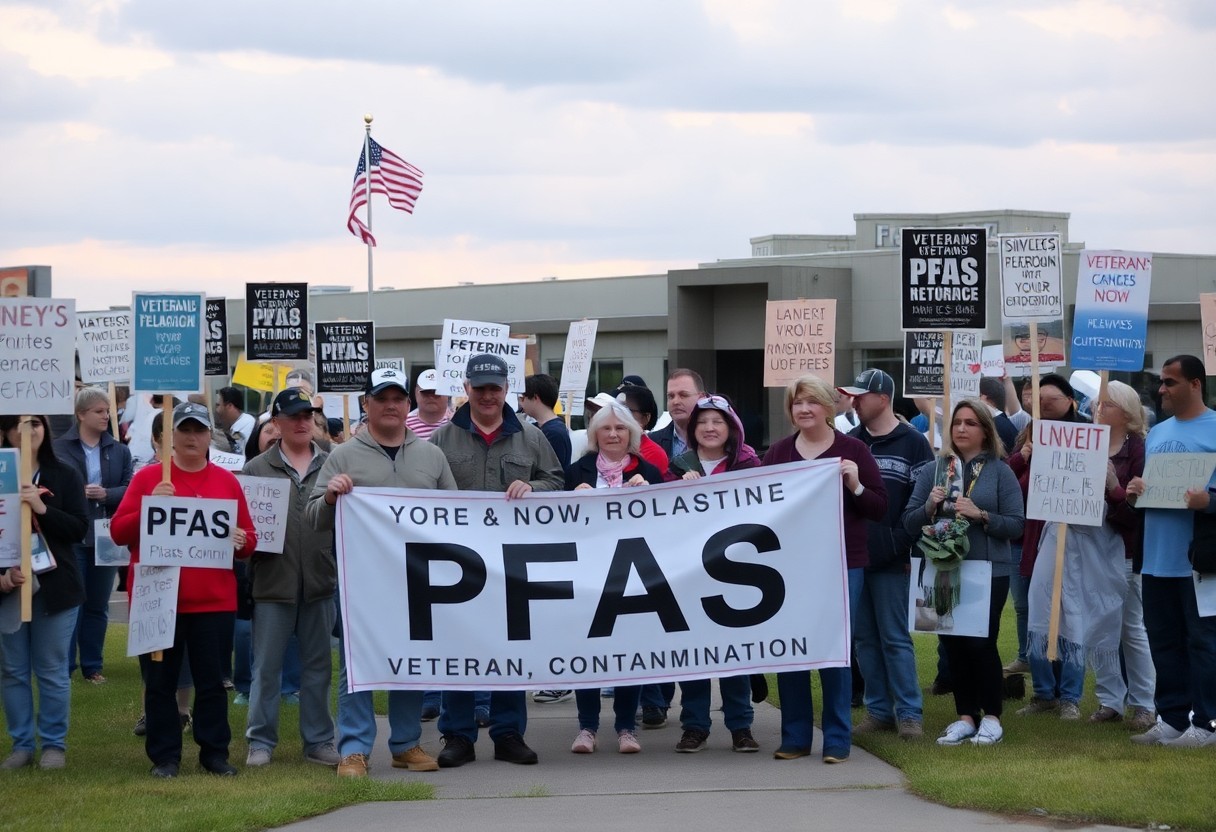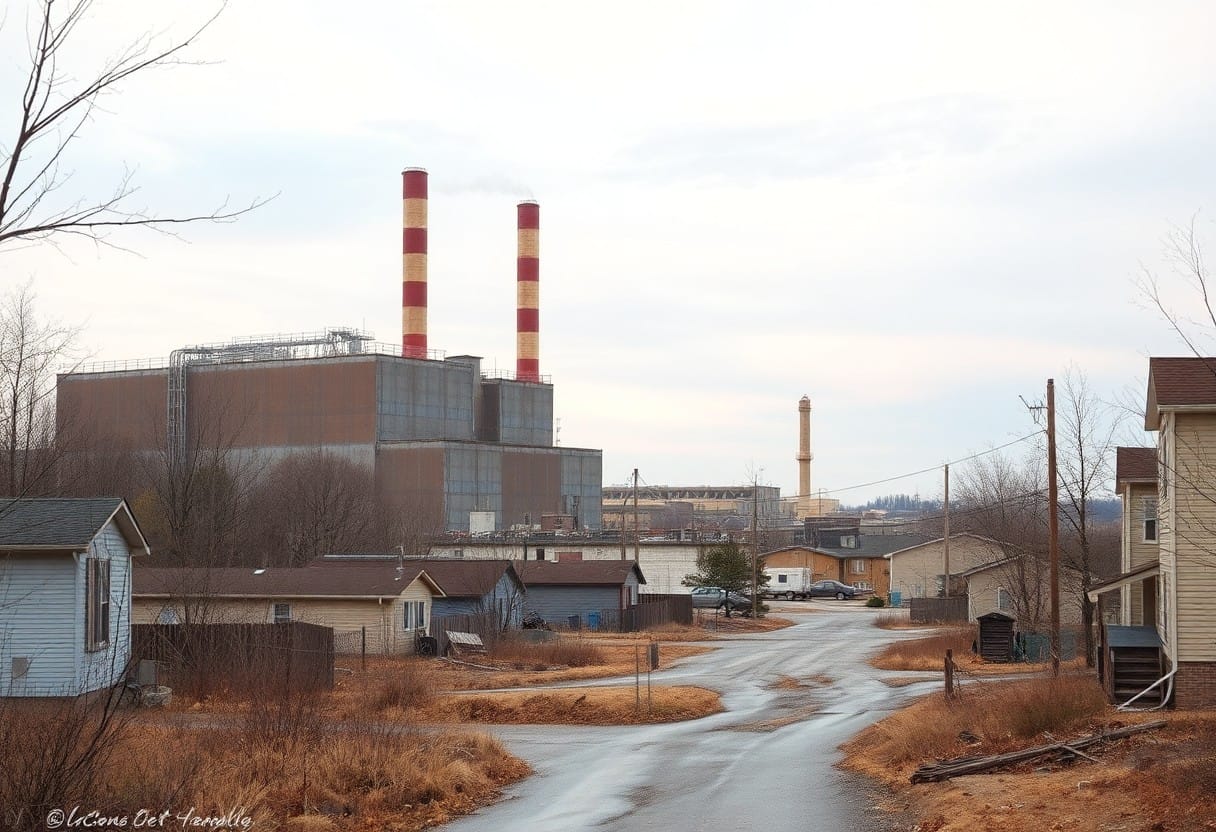Many homeowners may not realize that PFAS contamination can significantly affect your property values. These synthetic chemicals, often linked to various health risks, have been found in water supplies, leading to concerns about environmental safety and property desirability. As potential buyers become more aware of these risks, your home’s marketability may decline, prompting you to consider the implications of PFAS on your investment. In this post, we will explore how PFAS contamination can impact your real estate landscape and what steps you can take to mitigate potential losses.
Understanding PFAS Contamination
Before examining the impact of PFAS contamination on real estate, it’s crucial to grasp what PFAS means and how it affects homeowners. PFAS, or per- and polyfluoroalkyl substances, are a group of synthetic chemicals that resist grease, water, and stains. This unique property has led to their widespread use in various products, but unfortunately, they can also persist in the environment, creating long-lasting contamination issues.
Definition and Sources of PFAS
On a basic level, PFAS are man-made chemicals that have been utilized in various industries since the 1940s. Common sources include non-stick cookware, water-repellent clothing, stain-resistant fabrics, and firefighting foams. Their prevalence in everyday products has led to significant environmental exposure and contamination.
Health and Environmental Concerns
Sources of PFAS contamination have raised significant health and environmental concerns due to their potential impact on human health. You may be exposed to PFAS through contaminated drinking water, food sources, and even indoor air quality. These substances have been linked to a range of serious health issues, including developmental delays, liver damage, and increased risk of certain cancers. It’s crucial for you to understand these risks, as they affect not only your health but also the value of your property.
It’s alarming that PFAS contamination can persist in the body for long periods, accumulating and leading to adverse health effects over time. Studies have shown that these chemicals can disrupt hormonal systems and are associated with elevated cholesterol levels and immune system effects. Understanding these risks is vital because they not only pose a threat to your wellbeing but can also diminish your property’s desirability and market value, ultimately impacting your investment in real estate.
Regulatory Framework
Some homeowners may be unaware of the various regulations that govern PFAS contamination, which can have a significant impact on property values. Understanding this regulatory landscape is vital for you as a homeowner, especially if your property is situated in an area known for PFAS usage or contamination.
Current Regulations on PFAS
Behind the scenes, a combination of federal, state, and local regulations is being developed to address PFAS contamination. These regulations dictate permissible levels of PFAS in drinking water, soil, and consumer products, directly influencing your home’s value and marketability.
Future Legislative Trends
Along with current regulations, new legislative trends are emerging that could further impact PFAS guidelines. As awareness of PFAS hazards grows, you might see stricter controls and enforcement mechanisms being established, influencing both home values and neighborhood attractiveness.
Further, recent proposals for more comprehensive federal standards are making their way through legislative bodies. This shift may bring about stricter limitations on PFAS levels in various environmental media, increasing the focus on site remediation. Additionally, as community health initiatives gain support, there is potential for enhanced public awareness campaigns regarding PFAS risks, which could further influence your property’s desirability and value in the real estate market.
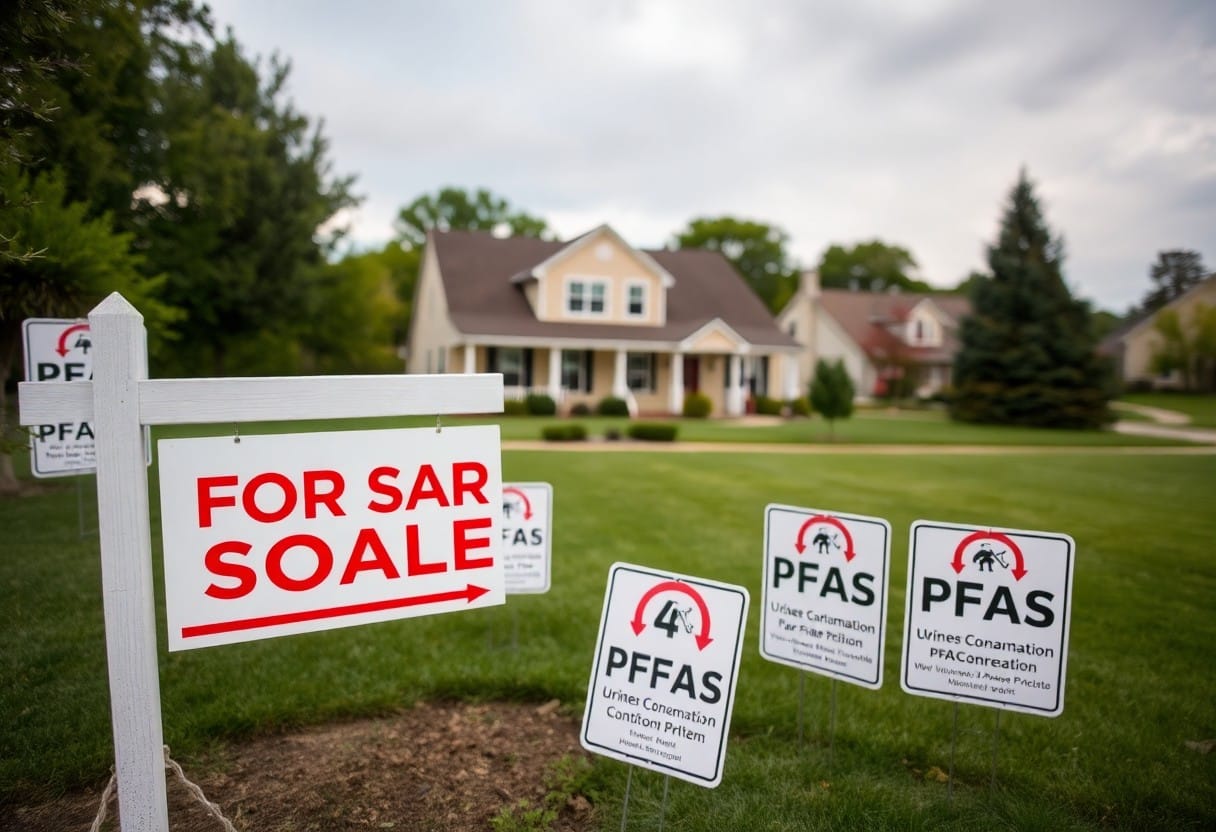
Impact on Property Values
The presence of PFAS contamination can significantly affect your property values. Homebuyers may be wary of purchasing properties in affected areas, leading to decreased demand and a drop in market prices. Properties located near or on contaminated sites could see a more significant impact, as these concerns can deter potential buyers and decrease resale values.
Market Reactions to PFAS Findings
Impact assessments show that when PFAS findings surface, immediate market reactions often result in stagnant sales and reduced property interest. As public awareness grows regarding the health risks associated with these chemicals, homebuyers may become increasingly hesitant, which places downward pressure on property values in contaminated zones.
Long-term Value Predictions
Across the real estate landscape, PFAS contamination raises concerns about long-term property values. Those who own or are considering purchasing real estate in affected areas may face a lengthy wait for any significant recovery in market value.
Indeed, the long-term value predictions for properties impacted by PFAS contamination are troubling. As you navigate this situation, be aware that the ongoing legal issues, cleanup obligations, and state and federal regulations related to PFAS may lead to prolonged uncertainty in your property’s market position. The declining demand, coupled with potential liabilities, can create stagnant or even decreasing values. It’s crucial to stay informed and consider how these factors might influence the future of your investment.
Disclosure Obligations for Homeowners
After purchasing a home, you have responsibilities regarding the disclosure of PFAS contamination. Understanding these obligations is vital to ensure transparency and protect your investment, as failing to disclose such information can lead to serious legal repercussions and financial loss.
Legal Requirements
At the state level, legal requirements for disclosing PFAS contamination vary, but many jurisdictions mandate that you inform potential buyers about known environmental hazards on your property. Staying informed about your local laws is important to avoid potential liability.
Ethical Considerations
On top of legal obligations, ethical considerations are paramount when dealing with PFAS contamination. You should prioritize honesty in your communications with potential buyers, ensuring they understand any associated risks related to environmental contamination.
Ethical obligations go beyond just legal compliance; they involve a duty to protect your potential buyers. By being transparent about PFAS contamination, you not only foster trust but also contribute to the wellbeing of others by providing them with the information they need. Being forthright can prevent serious health risks, enhancing the value of your integrity over time. Ultimately, your honesty can positively impact the market perception of your property and the community, ensuring that future homeowners are not blindsided by hidden dangers.
Mitigation Strategies for Homeowners
For homeowners dealing with PFAS contamination, understanding and implementing effective mitigation strategies is vital to safeguard your property value. Engaging with environmental professionals can guide you towards practical solutions tailored for your specific situation. By investing in comprehensive testing and taking necessary remediation actions, you can address contamination concerns effectively, ensuring your home remains a safe and valuable asset.
Remediation Options
Mitigation often begins with remediation options that can effectively clean and reduce PFAS levels in your property. Solutions may include soil excavation, groundwater treatment, or installing specialized filtration systems. Selecting the right approach depends on the contamination’s extent and your property’s geography, so consulting with experts in environmental science is key to making informed decisions.
Enhancing Property Value Despite Contamination
The fact that you are facing PFAS contamination does not mean your property value must suffer. Enhancing property value can still be achieved by demonstrating proactive contamination management. By investing in remediation and maintaining excellent property upkeep, you can appeal to prospective buyers who value transparency and safety. Committing to open communication about measures taken can further alleviate buyer concerns and fortify your property’s marketability.
It is necessary to understand that potential buyers are often concerned about the impact of PFAS on health and the environment. By showcasing your efforts in addressing contamination, such as installing modern filtration systems and obtaining relevant certifications, you can increase buyer confidence. Moreover, highlighting a well-maintained landscape and community resources that promote environmental safety may transform a perceived liability into an opportunity, maintaining or even enhancing your property value.
Case Studies and Real-Life Implications
To understand the real impact of PFAS contamination on property values, let’s look at some case studies:
- New York: Homes near contaminated sites lost up to 30% in value.
- Michigan: Properties located within a 5-mile radius of PFAS sources dropped 20% in sales price.
- New Jersey: Homebuyers faced decreased interest due to PFAS awareness, leading to price reductions of roughly 15%.
- California: A lifestyle neighborhood near contaminated groundwater saw a 40% decrease in demand.
Examples of Affected Communities
Affected communities show how PFAS contamination can significantly disrupt local real estate markets. In towns like Hoosick Falls, NY, and Midland, MI, property values have plummeted as concerns rise over health risks associated with PFAS exposure. Homeowners often find it challenging to sell or refinance their homes, leading to reduced financial stability for families.
Lessons Learned from PFAS Contamination
Before venturing into property investments, you should consider the lessons learned from past PFAS incidents. Awareness of potential contamination sources can save you from significant financial setbacks.
Plus, the most important lesson is the need for proactive measures. Conducting thorough property assessments and staying informed about local industrial practices can help mitigate your risk. Communities that have implemented clean-up policies and established monitoring programs have been able to regain property value and community trust. Learning from these experiences will empower you as a homeowner to make informed decisions and protect your investment.
Summing Up
Now that you understand the implications of PFAS contamination on real estate, it’s vital to stay informed about how this issue can directly affect your property value. As a homeowner, you should be proactive in researching potential PFAS sources nearby and consider environmental assessments before buying or selling. Awareness of these contaminants not only protects your investment but also informs your decision-making, ensuring that you navigate any potential pitfalls in the real estate market effectively.



